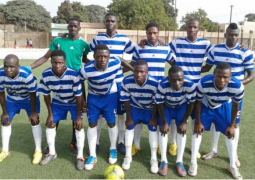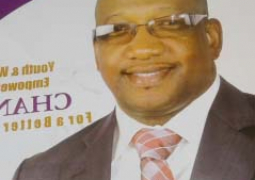Mastering the media has been a headache for many a people in this age and time.
Most times people lose their temper, walk out of an interview or worse still, do not grant interviews to journalists or media practitioners.
At times, we wonder why some people are so gifted in giving interviews. Here are a few tips that they probably used before and can help fight some of the phobia we have for the media and would help you want to give more interviews to journalists and media practitioners in the future.
First things first, you should know what type of interview you will be giving:
*Know the subject matter and how your interview fits into the bigger picture
*Ask what you will be speaking about.
*Ask how long the interview will take
*Where and how your interview will be used. Will they be using your interview on television, radio or print?
*If it's a broadcast interview, when will it air? Is it "live"?
Keep in Mind:
*The subject matter, Expect journalists to try to stray from your subject or be prepared that the conversation may not always go your way. The interviewer might try to you with something that happens to be "in the news" that day.
*How long your answers should be, sometimes you will need to give short answers.
*What type of people you will be speaking to.
*How often you want to say your "key points."
If you are speaking to a newspaper journalist:
*You can give much longer answers. There is room for explanations and details.
*Remember to sprinkle your "key points" while you are being interviewed.
*Try to remember to say something "quotable" or "memorable" to the reporter.
Broadcast: News/Short Feature/Edited:
*Think in short and catchy answers.
*Don't forget to include your "key points."
*Try not to use the interviewer's name.
*Try not to say the date and time you are being interviewed. The news you see on Television is often recycled and re-used in a 24-hour period.
Broadcast: Studio/Satellite/Unedited
*Answers can be slightly longer. It's okay to be little more detailed.
*You don't need to say your "key points" in every answer. You can mention them occasionally.
*If the interview isn't long, it's best to get your messages in fairly early if possible.
*It's okay to use the interviewer's name if you wish.
Prepare Yourself:
*Know what the person interviewing you expects and hopes to gain from the interview.
*Focus you "key points" and stick to them. Don't begin talking about something else.
*Stick to some basic interview dos and don'ts.
Unwritten Rules:
*Consider any conversation with a journalist an interview.
*Once you've given something away don't expect to get it back.
*Always assume a journalist will print anything you say.
*For radio or television, always assume you microphone or camera is on.
Set Up:
*Be prepared ahead of time.
*Ask about the type and length of interview you will be doing.
*Be aware of the "pre interview".
*Don't ask for the interview questions ahead of time or try to restrict topics.
*Ask about the subject areas to be discussed and the "big picture".
*Most importantly, make sure reporter's deadlines are respected and building relationships with the media is important. For any interview, for print or broadcast, live or recorded, it's important to remember your "key points." This is what the media wants. And, it's also to your advantage. A Media interview will leave you feeling fresh and confident about yourself.



